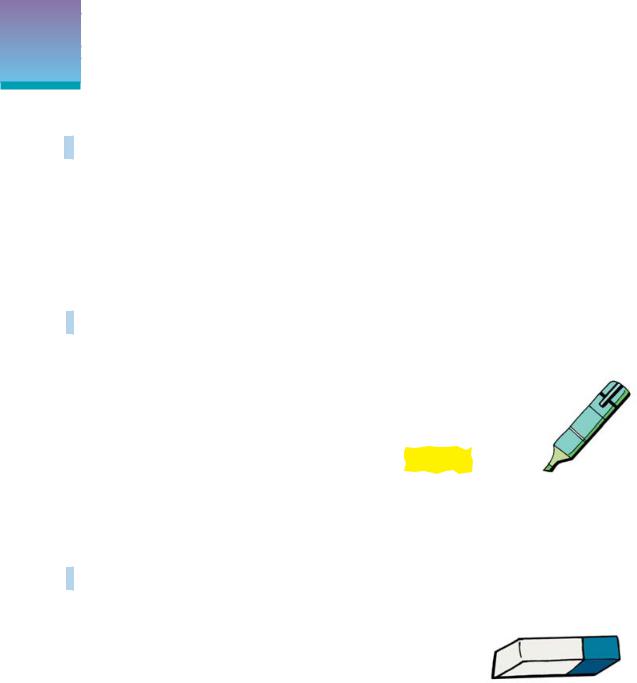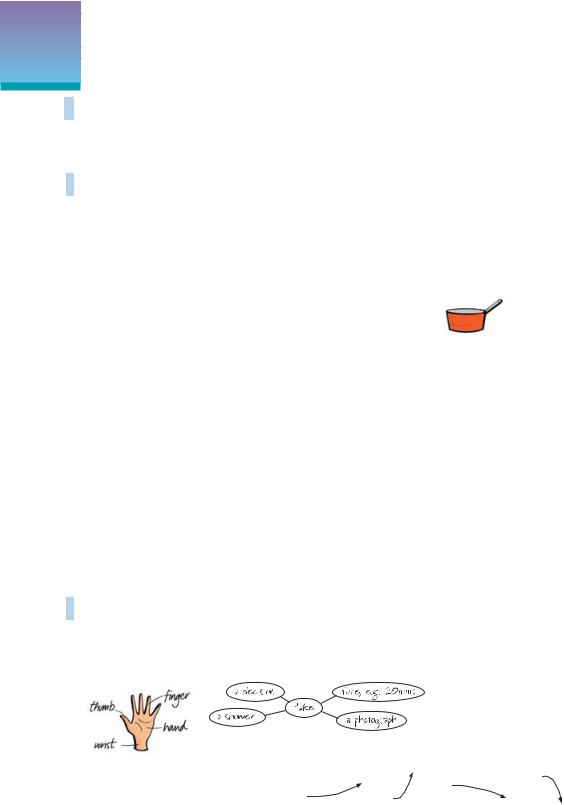
eng_vocabulary_in_use_pre-int_int
.pdf
English
Vocabulary
in Use
pre-intermediate &
intermediate
Stuart Redman
P U B L I S H E D B Y T H E P R E S S S Y N D I C A T E O F T H E U N I V E R S I T Y O F C A M B R I D G E
The Pitt Building, Trumpington Street, Cambridge, United Kingdom
C A M B R I D G E U N I V E R S I T Y P R E S S
The Edinburgh Building, Cambridge CB2 2RU, UK
40 West 20th Street, New York, NY 10011–4211, USA
477 Williamstown Road, Port Melbourne, VIC 3207, Australia Ruiz de Alarcón 13, 28014 Madrid, Spain
Dock House, The Waterfront, Cape Town 8001, South Africa
http://www.cambridge.org
© Cambridge University Press, 1997, 2003
This book is in copyright. Subject to statutory exception
and to the provisions of relevant collective licensing agreements, no reproduction of any part may take place without
the written permission of Cambridge University Press.
First published 1997
New edition 2003
Third printing 2004
Printed in Dubai by Oriental Press
Typeface Sabon 10/12pt System QuarkXPress® [OD&I]
A catalogue record for this book is available from the British Library
ISBN 0 521 01171 X paperback
Contents
Introduction |
vi |
Using this book |
1 |
Learning
1Learning and revising with this book have a routine, revision, say the word aloud
2Keeping a vocabulary notebook record, the most important thing is …
3Using a dictionary look up a word, guess the meaning
4English language words adjective, phrasal verb, question mark
5Classroom language board pen, share a book, swap places
Word formation
6 Prefixes un-, in-, im-, dis-
7Noun suffixes -ment, -ity, -ness, -tion
8 |
Adjective suffixes |
-able, -ive, -al, -y |
|
9 |
Nouns and verbs with the same form |
guess/to guess, kiss/to kiss, rest/to rest |
|
10Compound nouns traffic light, tin opener, credit card, film star
11Compound adjectives easy-going, well-known, part-time
Phrase building
12Collocation (word partners) miss the bus, a soft drink, fast asleep
13Idioms and fixed expressions never mind, go ahead, take it in turns
14 Verb or adjective + preposition |
depend on, belong to, interested in |
15Preposition + noun by train, on the radio, in a hurry
16Apologies, excuses and thanks sorry I’m late, I got held up, thanks a lot
17 Requests, invitations and suggestions |
Could you …? How about …? if you like |
18Opinions, agreeing and disagreeing What do you think of …? a brilliant idea
19Likes, preferences and interests I quite like, and that sort of thing, I’d rather
20Frequently asked questions How’s it going? What’s the matter?
21Common responses I hope so, that sounds great, what a shame
22 |
Greetings, farewells and special expressions |
Nice to meet you, see you soon, good luck |
|
23 |
Phrasal verbs (1): form and meaning |
wake up, find out, run out of sth |
|
24 |
Phrasal verbs (2): grammar and style |
take sth off, grow up, break down |
|
25Have and have got have a rest, I’ve got a headache, have a look
26Make, do and take make a mistake, do homework, take a photo
27Give, keep, break, see give sb a ring, break a record, I see
28Leave, catch and let leave a message, catch a bus, let sb know
29Get: uses and expressions get dressed, get married, get on with
30Go: uses and expressions go for a drink, have a go, go deaf
31The senses it looks nice, it feels like wool, don’t touch
32Partitives: a bag of …, a bit of … a cup of coffee, a bit of luck, a pair of shoes
Parts of speech (special problems)
33 |
Uncountable nouns and plural nouns |
information (U), trousers (pl) |
|
34 |
Verbs + -ing form or infinitive |
enjoy + -ing, refuse + infinitive |
|
35Verb patterns advise him to go …, suggest (that) we leave
36Adjectives boring or bored, big or enormous
English Vocabulary in Use (pre-intermediate & intermediate) iii
37Prepositions: place at the bus stop, on the floor, past the castle
38Adverbs: frequency and degree I rarely go, I quite often drive, rather good
Connecting and linking
39 |
Time and sequence |
as soon as, while, eventually |
|
|
40 |
Addition and contrast |
as well, although, however |
||
41 |
Similarities, differences, comparisons, exceptions |
very similar, compared with, apart |
||
|
from |
|
|
|
42 |
Reason, purpose, result, condition |
so, because of, so that, therefore, unless |
||
Topics
The world around us
43The physical world round the world, Sahara Desert, floods
44Weather heavy rain, a strong wind, lightning
45Animals and insects pets, elephants, in the wild, protect
46Countries, nationality and language Poland, the Far East, the French, in general
People
47The body and what it can do elbow, neck, breathe in, shake hands
48Describing people’s appearance good-looking, tall and slim, fair hair
49Describing character shy, show your feelings, a sense of humour
50Human feelings and actions angry, proud of, glance at, have a stroll
51Family and friends mother-in-law, close friend, ex-husband
52Ages and stages childhood, go to university, in your twenties
Daily life
53Daily routines fall asleep, have a shower, get to work
54The place where you live right in the centre, on the first floor, rent
55Around the home (1) spare room, lamp, cupboard, turn on the TV
56Around the home (2) pillows, have a wash, do the ironing
57Everyday problems spill, out of order, run out of bread
58Money £10 note, lend and borrow, can’t afford
59Health: illness I don’t feel well, flu, I get backache
60Health: physical injuries break an arm, go to hospital, painful
61Clothes skirt, earrings, put on a coat, too small
62Shops and shopping go shopping, department store, cash desk
63Food peach, peel an orange, lamb, salad dressing
64Cooking and restaurants fresh bread, medium-rare, main course
65City life the rush hour, shopping centre, lively
66Life in the country rural area, on a farm, the nearest village
67On the road main road, turn left, break down
68Transport get on the bus, go by car, platform two
Work
69 Work: duties, pay and conditions |
What do you do?, deal with, salary |
70Jobs surgeon, design buildings, in the army
71The career ladder apply for a job, pay rise, work abroad
iv English Vocabulary in Use (pre-intermediate & intermediate)
72In the office send e-mail, do paperwork, it isn’t working
73Business and finance interest rate, profit and loss, rise sharply
Leisure and entertainment
74Sport: ball games table tennis, pass the ball, win a game
75Sport and leisure swimming, go to the gym, support a team
76Cinema and theatre stage, third row, war film, violent, gripping
77Music composer, lead singer, hit single, latest CD
Communication and technology
78Newspapers daily paper, headline, according to …
79Television switch over, soap opera, What’s on TV?
80On the phone mobile phone, wrong number, Is that Mary?
81Computers and the Internet hard disk, download, get online, browse
Social concerns
82Education: school primary school, geography, pass an exam
83Education: university engineering, do a degree, graduate, PhD
84Law and order illegal, break the law, arrest someone, guilty
85Crime shoplifting, robbery, late at night, valuables
86Politics believe in democracy, left-wing, election
87Bureaucracy identity card, fill in, signature, date of birth
88Global problems pollution, destroy the planet, civil war
Tourism
89Air travel check-in desk, land, a two-hour delay
90Hotels and restaurants single room, pay the bill, Is dinner included?
91A sightseeing holiday in the city have a look round, guidebook, nightlife
92Holidays by the sea seaside resort, sunbathe, sandy beach
Notional concepts
93Time on Monday, since May, it takes an hour
94Numbers two million, one and a half, divide by three
95Distance, size and dimension a long way, too far, How wide is it?
96Shapes, colours and patterns a round table, a dark green skirt, yellowish
Varieties of English
97Notices and warnings sold out, no exit, mind the step, no parking
98Vague language a vague idea, things, stuff, a bit, roughly
99 |
Formal and informal English |
buy vs purchase, kids vs children |
|
100 |
Abbreviations and abbreviated words |
CV, MP, e.g., etc., lab, fridge, bike |
|
Answer key |
|
204 |
|
Phonemic symbols |
|
242 |
|
Pronunciation problems |
|
243 |
|
Index |
|
244 |
|
Acknowledgements |
|
263 |
|
English Vocabulary in Use (pre-intermediate & intermediate) v

1Learning and revising with this book
Look at Exercise 1.1 on the next page before you read this page.


































 A
A



 Have a routine
Have a routine
A routine means doing certain things often and in the same way. If you are using this book for self-study (= to study alone), it helps to have a routine. So, how much time can you spend on the book each day or each week? Here are some ideas:
•if you are studying a new unit, spend at least (= a minimum of) half an hour or 45 minutes
•if you are revising (= studying a unit for a second or third time), five or ten minutes is very useful.
So, plan longer periods for new units and shorter periods for revision.


































 B
B




 Using the book
Using the book
Do different things to maintain your interest. (= keep your interest high) For example:
1Don’t study the units in the same order as the book. Choose (= select) units that interest you (= are interesting for you).
2When you do a unit, you can read the whole (= all) of the left-hand page (= page on the left), then do the exercises. Or, do the exercises first, then read the left-hand page if there is a problem.
3Be active when you are learning. For example:
•when you are reading the left-hand page, use a highlighter pen to mark new or interesting vocabulary;
•practise saying the words aloud (= speaking them), so you can pronounce them
(= say the pronunciation), and also silently (= without a noise) in your head to help you to remember them;
•put new words in your own notebook using some of the ideas from Unit 2.


































 C
C




 Revision
Revision
It’s easy to forget words that you learn, but if you revise for short periods, it helps you to remember words and make them part of your active vocabulary. Here are some ideas.
1 Do exercises in pencil. Check your answers when you finish, then rub them out (= remove them using a rubber). Later,
come back and do the exercises again. Use the
rubber
left-hand page if you have a problem.
2When you read a left-hand page for a second time, have a blank piece of paper (= paper with no writing on it) with you. When you come to a new word in bold with a definition in (brackets), cover the definition (= put the paper over it) and try to define it (= give the meaning/definition).
3Revise for short periods but do it often. Five minutes a day (NOT five minutes per day) is probably better than half an hour a week; but half an hour a week is probably better than two hours a month.
4Be active when you revise, e.g. test yourself, practise the pronunciation, write down important words and phrases in your notebook with example sentences.
4 English Vocabulary in Use (pre-intermediate & intermediate)
Exercises
1.1Read these questions. What do you think? (Answers are on the opposite page.)
1 Is it better to plan regular self-study, or just study when you’ve got some free time? 2 Is it a good idea to study the units in the same order as they appear in the book?
3 Is it a good idea to write down new words in a notebook when you are studying a unit? 4 Is it necessary to revise vocabulary (= study it again for a second or third time)?
5 Is it better to revise vocabulary occasionally for long periods of time, or is it better to revise regularly for short periods of time?
1.2Find your way round the book.
•Turn to the Topic units in the Contents on pages iv–v.
•Take a blank piece of paper and cover the right-hand side of the page with the examples.
•Read the list of unit titles, and write down your own examples – one or two for each unit.
•Are there any unit titles you don’t understand? Are there any units where you can’t think of examples? If so, turn to that unit and find out what it is about.
You could use similar titles in your own vocabulary notebook (see Unit 2).
1.3Complete the table.
noun |
verb |
|
|
definition |
define |
|
.................................... |
revision |
.................................... |
pronunciation |
.................................... |
choice |
.................................... |
interest |
.................................... |
|
|
1.4There is a mistake with the underlined words. Can you correct each one?
1 Did you make all of the exercises?
2 I studied for one half hour.
3 Do you always read the left page first?
4 I passed twenty minutes on the first exercise.
5 I read the all page.
1.5True or False? If the sentence is false, rewrite it to make it true. Write in pencil.
1 |
In this book, most of the important new vocabulary is shown in bold print. True |
2 |
Definitions/explanations of new words are often in brackets after the word. |
3 |
A routine means doing certain things in a different way each time. |
4 |
If you maintain something at a level, it means you keep it at the same level. |
5 |
At least 50 people means a maximum of 50 people. |
6 |
If you write something then rub it out, you remove it from the page. |
7 |
If you do something silently, you do it without a noise. |
8 |
Revision means studying something for the first time. |
9 |
If you read a whole book, you read all of it. |
10 |
A blank piece of paper is full of writing. |
Check your answers. Look at any wrong answers carefully, then rub them out. Do the exercise again tomorrow.
English Vocabulary in Use (pre-intermediate & intermediate) 5

2Keeping a vocabulary notebook


































 A
A



 Organising your notebook
Organising your notebook
Give each page a title, e.g. sport, education, verbs followed by an -ing form, etc. When you learn new words and phrases, write them on a suitable page.


































 B
B




 What do I need to record?
What do I need to record?
what? |
how? |
example |
|
|
|
|
|
Meaning |
a |
translation |
remember = lembrar [in Portuguese] |
|
b |
definition/explanation |
A pond is an area of water smaller than a |
|
|
|
lake. |
|
c |
synonym or opposite |
awful (= terrible); ugly (opp beautiful) |
|
d |
picture |
saucepan |
|
e |
example sentence |
My hands were cold, so I put on my gloves. |
Pronunciation |
phonemic symbols |
ache /e k/ |
|
|
or your own system |
ache [like ‘make’] |
|
Part of speech |
noun (n), verb (v) |
gloves (n); remember (v); careful (adj) |
|
Grammar |
make a note + |
enjoy + -ing form; I enjoy going to parties. |
|
|
example sentence |
weather (uncountable); We had lovely |
|
|
|
|
weather in Italy. |
Common partners |
phrase or sentence |
make a mistake; on the phone; (a) black |
|
|
|
|
coffee (= coffee without milk) |
Special style |
make a note |
purchase (= buy: formal) kids (= children: |
|
|
|
|
informal) |
|
|
|
|
You don’t need to record all of these things for every word or phrase. The most important thing is to show the words in typical examples. Leave space in your notebook as well, then you can come back and add more information later if you learn something new.


































 C
C




 Organising words on the page
Organising words on the page
Don’t just write lists of individual words. Put words together that appear together, e.g. blonde hair (opp black hair), get off the bus (= go out of the bus). Make the pages interesting with pictures, diagrams and example sentences.
1 2 
 3 smile (v,n)
3 smile (v,n)
e.g. She smiled at me yesterday. He gave me a big smile. She’s got a lovely smile.
Don’t pronounce the ‘w’ in wrist or the ‘b’ in thumb.
4
rise slowly |
rise sharply |
fall slowly |
fall sharply |
Note both verbs are irregular: rise/rose/risen; fall/fell/fallen.
6 English Vocabulary in Use (pre-intermediate & intermediate)

Exercises
2.1 Organise this list of words into three groups and give each one a title.
unfriendly |
put on |
platform |
gloves |
unhappy |
train |
get on |
unable |
size |
jumper |
wear |
late |
unkind |
tie |
passenger |
|
|
|
|
|
Find the units in this book which may include these words. Add more to each group.
2.2 Fill the gaps with suitable words to form common partners with the nouns in bold.
1 |
She’s ..................................... |
the phone at the moment. |
|
|
2 |
A: Do you want milk and sugar? |
B: No, just a ..................................... |
coffee, please. |
|
3 |
If you’re cold, why don’t you ..................................... |
your coat? |
|
|
4 |
I don’t usually ..................................... |
that mistake. |
|
|
5 |
She ..................................... |
me a big smile this morning. |
|
|
6 |
It was the third ..................................... |
of my left hand. |
|
|
2.3Underline the correct answer.
1 |
A pond is: |
|
|
|
|
|
|
a |
bigger than a lake |
b |
smaller than a lake |
c |
the same size |
2 |
I really enjoy: |
|
|
|
|
|
|
a |
play tennis |
b |
to play tennis |
c |
playing tennis |
3 |
When we were on holiday we had: |
|
|
|
||
|
a |
lovely weathers |
b |
lovely weather |
c |
a lovely weather |
4 |
The underlined letters in ache are pronounced the same as in: |
|
|
|||
|
a |
machine |
b |
catch |
c |
chemist |
5 |
The past tense of ‘fall’ is: |
|
|
|
|
|
|
a |
fell |
b |
felt |
c |
falled |
6 |
You can ‘get off’: |
|
|
|
|
|
|
a |
a bus |
b |
a kitchen |
c |
a noise |
7 |
‘Rise sharply’ means: |
|
|
|
|
|
|
a |
|
b |
|
c |
|
8 |
‘Purchase’ is: |
|
|
|
|
|
|
a |
an informal word for ‘buy’ |
b |
a formal word for ‘buy’ |
c |
a formal word for ‘child’ |
2.4Look at the words below. What is the best way to record their meaning? What other information would be useful? Use a dictionary to help you.
Example You could record ‘dream’ with a translation, a picture (see Unit 9), or an explanation, e.g. things you imagine in your sleep. ‘Dream’ can be a verb or noun and is often followed by ‘about’, e.g. I dreamt about you.
dream |
concentrate |
beard |
nearly |
empty |
rescue |
knife |
|
|
|
|
|
|
|
2.5Write down three more nouns that often follow ‘take’. Do the same for ‘make’ and ‘do’.
take a shower |
make ..................................... |
do |
..................................... |
|
..................................... |
English Vocabulary in Use (pre-intermediate & intermediate) 7

3Using a dictionary


































 A
A



 What dictionaries do I need?
What dictionaries do I need?
Buy a good bilingual dictionary and a good English–English dictionary. The bilingual dictionary is easier for you to understand; but it’s also good for you to work in English as much as possible.
large dictionaries |
medium-sized dictionaries |
|
|
Cambridge Advanced Learner’s Dictionary |
Cambridge Learner’s Dictionary |
Longman Dictionary of Contemporary English |
Longman Active Study Dictionary |
Oxford Advanced Learner’s Dictionary |
Oxford Wordpower Dictionary |
|
|


































 B
B




 What information does a dictionary give me?
What information does a dictionary give me?
Look up a word (= find a word in a dictionary) and you will get this information.
•the meaning, e.g. homesick = unhappy because you are away from home for a long period
•the pronunciation (using phonemic symbols), e.g. island /a lənd/, lose /lu z/, tiny /ta ni/
•the part of speech, e.g. dirty adj (= adjective), choose v (= verb), law n (= noun)
•word grammar, e.g. advice (U) (= uncountable noun), begin (began, begun) (= the past tense and past participle)
•common collocations (see Unit 12), e.g. do homework (NOT make); It depends on you
(NOT of)
•example phrases or sentences, e.g. The train leaves from platform seven.
•sometimes synonyms or opposites, e.g. polite (syn = courteous; opp = impolite)
pronunciation |
part of speech |
grammatical features |
|
||
|
seat1 /si t/ noun [C] 1 SIT something that you sit |
|
common |
on Please, have/take a seat (= sit down). • I’ve |
|
booked three seats for the cinema tonight. • the |
||
collocations |
back/front seat of a car |
|
definition
example sentences


































 C
C




 How can I use my dictionary?
How can I use my dictionary?
When you look up a word, put a tick ( ) next to it. Each time you return to a page with a tick, look at it quickly to check you remember the word.
When you see a new word or phrase in a text, first try to guess the meaning (= try to think of the meaning from the context), then carry on (= continue) reading to see (= find out) if your guess is correct. Use your dictionary to check the meaning. (= find out if the meaning is correct)
Don’t just read definitions. The example phrases and sentences show you how a word or phrase is used, and they often help you to understand the meaning more clearly.
If you look up a word in a bilingual dictionary and get several different translations, check in a monolingual dictionary to see which translation is the best one in the context. Remember that many words have more than one meaning. The first meaning in the dictionary is not always the one you want. Read through the different meanings.
8 English Vocabulary in Use (pre-intermediate & intermediate)
